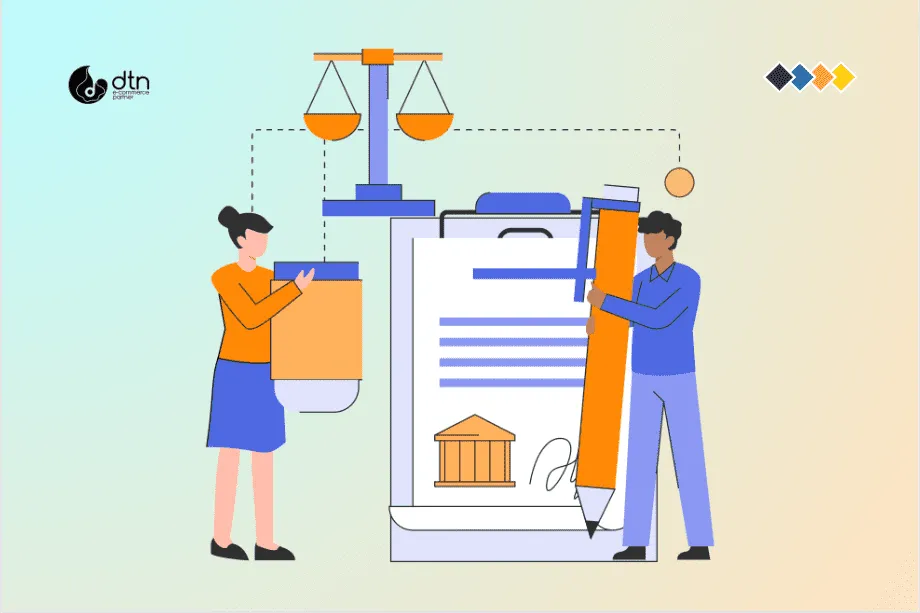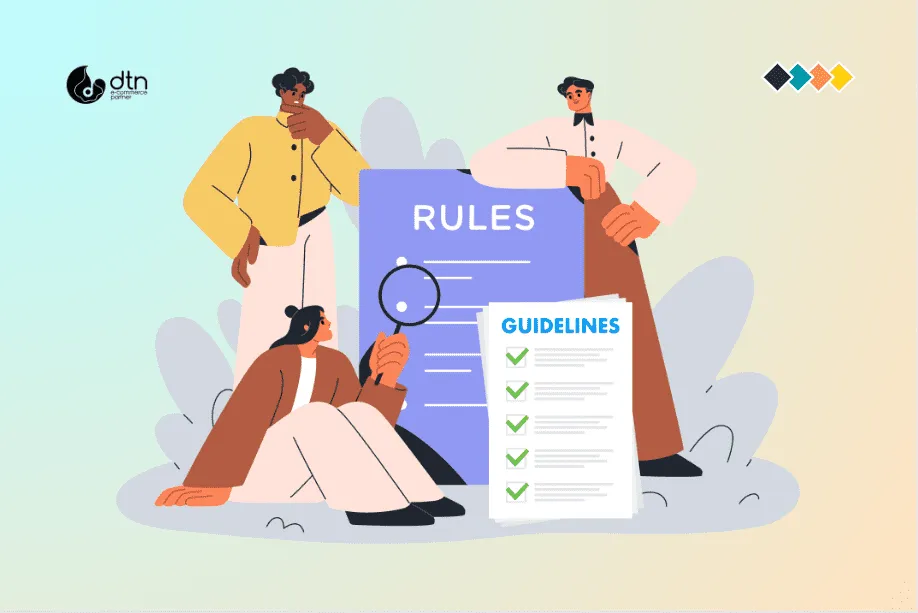As businesses and consumers increasingly engage in online transactions, it’s crucial to understand the legal framework that governs this realm. E-commerce laws and regulations aim to protect both parties involved in online transactions, ensuring fairness, transparency, and consumer rights.
Table of Contents
Key E-commerce Laws and Regulations
1. Electronic Signatures in Global and National Commerce Act (ESIGN)
ESIGN provides legal validity to electronic signatures and records, making them as legally binding as their paper counterparts. This law enables businesses to conduct electronic transactions securely and efficiently.
2. Uniform Electronic Transactions Act (UETA)
UETA governs the legal recognition of electronic contracts, records, and signatures. It establishes the validity of electronic transactions and provides guidelines for electronic record-keeping.
3. Consumer Protection Laws
Various consumer protection laws apply to e-commerce transactions, including:
- Truth-in-Advertising Laws: Prohibit false or misleading advertising.
- Privacy Laws: Protect consumers’ personal information collected online.
- Refund and Return Policies: Provide consumers with clear refund and return policies.
4. Tax Laws
E-commerce businesses are subject to sales and use tax laws. Businesses must collect and remit taxes based on the location of their customers.
5. Intellectual Property Laws
E-commerce businesses must comply with copyright, trademark, and patent laws. They are prohibited from using copyrighted materials or infringing on intellectual property rights.

6. Data Protection Laws
Data protection laws, such as the General Data Protection Regulation (GDPR) in the EU, regulate the collection, storage, and use of personal data. E-commerce businesses must adhere to these laws to protect consumer privacy.
7. Shipping and Delivery Laws
E-commerce businesses must comply with shipping and delivery laws, including regulations on packaging, labeling, and tracking.
8. Dispute Resolution Mechanisms
E-commerce platforms often provide dispute resolution mechanisms to facilitate the resolution of disputes between buyers and sellers.
Compliance and Enforcement
Compliance with e-commerce laws and regulations is essential for businesses to avoid legal penalties and maintain customer trust. Government agencies and regulatory bodies enforce these laws through inspections, audits, and legal actions.

Benefits of Compliance
- Legal Protection: Compliance shields businesses from legal liabilities and penalties.
- Consumer Trust: Adhering to e-commerce laws builds consumer trust and loyalty.
- Competitive Advantage: Compliance demonstrates a commitment to ethical and responsible business practices, giving businesses a competitive edge.
- Reduced Risk: Compliance minimizes the risk of disputes, chargebacks, and other legal issues.

Conclusion
E-commerce laws and regulations are essential for the growth and sustainability of online commerce. They protect consumers, ensure fair competition, and promote innovation. By understanding and complying with these laws, e-commerce businesses can operate ethically, build trust, and drive success in the digital marketplace.
Frequently Asked Questions
We’ve compiled a list of answers to common questions.
How do e-commerce laws protect consumer privacy?
E-commerce laws, such as privacy laws and regulations like the GDPR, mandate that businesses collect and handle consumer data responsibly. They require businesses to obtain consent before collecting personal information, provide transparent privacy policies, and implement measures to secure and protect data from unauthorized access or disclosure.
What are the consequences of non-compliance with e-commerce laws and regulations?
Non-compliance with e-commerce laws can result in legal penalties, fines, lawsuits, and damage to a business’s reputation. Government agencies and regulatory bodies may impose sanctions, conduct investigations, or pursue legal action against businesses found to be in violation of applicable laws and regulations.
How can e-commerce businesses ensure compliance with tax laws in different jurisdictions?
E-commerce businesses can ensure compliance with tax laws by staying informed about the tax regulations in each jurisdiction where they operate, collecting and remitting taxes accurately based on the applicable rates and rules, leveraging tax compliance software or services, and consulting with tax professionals or advisors to navigate complex tax requirements.
What steps can e-commerce businesses take to protect intellectual property rights?
E-commerce businesses can protect intellectual property rights by conducting thorough research to ensure that their products and content do not infringe on existing copyrights, trademarks, or patents. They can also register their intellectual property with the appropriate authorities, implement measures to monitor and enforce their rights, and take legal action against infringers when necessary.
How do e-commerce platforms facilitate dispute resolution between buyers and sellers?
E-commerce platforms typically offer dispute resolution mechanisms, such as mediation or arbitration services, to help resolve disputes between buyers and sellers. These platforms may provide guidelines, tools, and assistance to facilitate communication, negotiation, and resolution of issues related to transactions, refunds, returns, or disputes over product quality or delivery.



